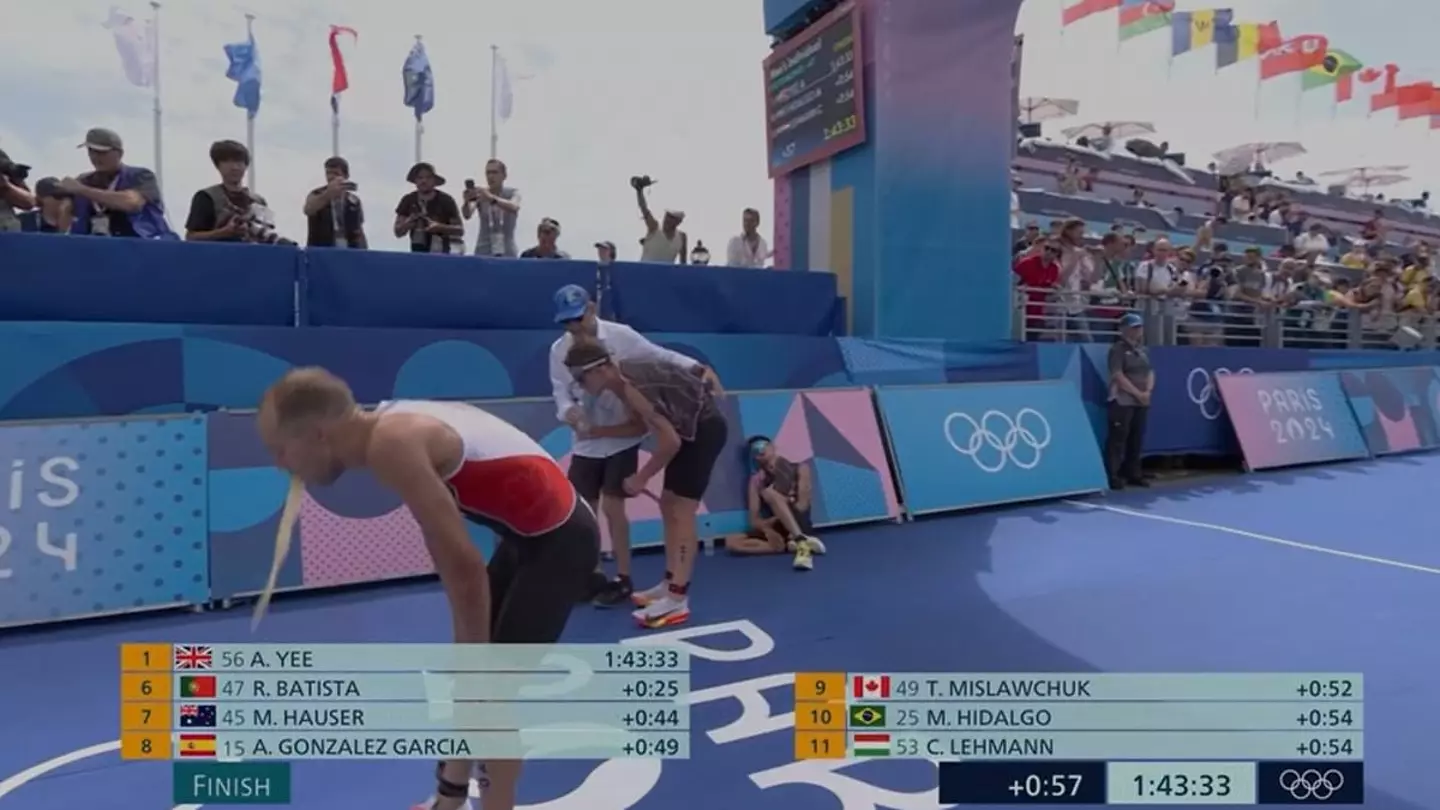Canadian triathlete Tyler Mislawchuk recently addressed an incident where he was seen vomiting on live television after swimming in the River Seine during the Olympics.
On July 31, Mislawchuk competed in the 2024 Paris Olympic Games’ triathlon event, which included a 1.5km swim in the Seine, a 40km bike ride, and a 10km run, with temperatures soaring to around 30°C (86°F).
As he crossed the finish line, securing an impressive ninth place with a time of 1:44:25, the 29-year-old was caught on camera vomiting.
This wasn’t a one-time occurrence; he vomited a staggering ’10 times’.

Soon after, speculation arose about whether his sickness was due to swimming in the Seine river. The men’s triathlon had been postponed just hours before it was initially scheduled, after an inspection revealed high pollution levels in the river, posing dangers to competitors. This came despite French officials investing around $1.5 billion to improve the river’s safety, following a June test that indicated unsafe levels of E. coli bacteria.
Speaking to cameras post-race, as quoted by Marca, Mislawchuk explained: “Did I vomit once? No, I threw up 10 times… The last four kilometers were deadly and I started feeling sick and very hot.”
The athlete further elaborated on his condition after the race.

In a conversation with the Canadian Press, Mislawchuk disclosed that he had participated in the Olympic race while recovering from an Achilles tear.
“Which sometimes athletes never come back from and at times it felt like maybe I’ll never come back,” he said. “So, to be standing on the start line, healthy and fit was a win in itself and so I just got told before the race, ‘Go out there and play and just enjoy yourself’. And that’s exactly what I did.”
Reflecting on his emotions after the race, he said he was ‘pretty emotional’ and added that ‘ninth [place] is amazing against the best guys in the world’.
“I don’t think it was so much to do with ninth that I was emotional you know, it was, as an athlete you have doubts all the time you have a lot of ups and downs but this last three years has been really tough on me [because of my achilles heel],” he remarked.

Discussing the end of the race, Mislawchuk, who had clearly pushed himself to the limit given how many times he vomited, joked: “Yeah there’s nothing left, if you’ve seen the finish line, there’s nothing left for me to give.”
He concluded: “I think that’s what I’m happy about, you know? I pushed myself and throughout the race so many times when I started hurting, I just said 20 more seconds you know just stay on for 20 more seconds and I did that too many times to count.”
“[…] It can get you a long way.”
In earlier Olympic history, medals were also awarded for art, with events including painting, sculpture, music, architecture, and literature.
Art competitions made their debut at the 1912 Olympics in Stockholm and continued until the 1948 London games, with juries awarding a total of 151 medals for artistic projects inspired by sport.
You might not have known that Tug of War was once an Olympic sport. It was popular but also controversial, with accusations of foul play emerging during the 1908 Olympics in London, where Team USA accused Team GB of cheating with ‘illegal’ heavy footwear.
The sport was featured in around five Olympic games from 1900 to 1920, and enthusiasts have campaigned for its reintroduction.
Hot air ballooning made its Olympic debut in 1900, where competitors were scored based on distance traveled, altitude reached, accuracy in landing, and the quality of photographs taken from the balloon. The sport was discontinued following a ban on motorized sports.
Another short-lived Olympic event introduced in 1900 involved shooting live pigeons. Competitors aimed to shoot as many pigeons as possible, with approximately 300 pigeons killed during the event. The event only appeared once at the Olympics and was later discontinued, likely due to its gruesome nature.
In 1906, an Olympic event involved competitors shooting at dummies, but by 1908, they were shooting at each other with wax bullets. The event was quickly dropped after 1908, likely due to safety concerns, even with wax bullets.

